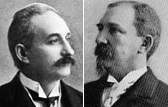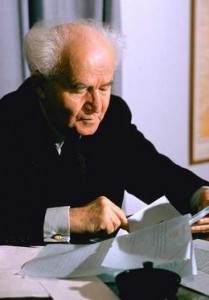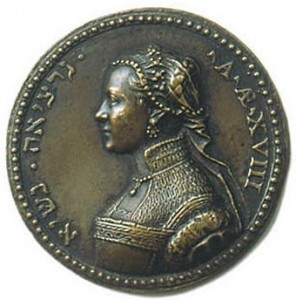Macy’s and Bloomingdale’s
Lyman Bloomingdale (1841-1905) and Joseph Bloomingdale (1842-1904) were the sons of German-Jewish immigrants who settled in New York. Their father Benjamin started a small clothing shop, and it was here that Lyman and Joseph sold their first hoop skirts for ladies. In 1872, the brothers opened their own store. Business boomed, and in 1886, the company expanded and opened its current world-famous Bloomingdale’s location. Over the next century, Bloomingdale’s went on to open dozens of stores across America, and become one of the most recognizable department store brands in the world. In 1930, Bloomingdale’s joined together with another department store giant – Macy’s. Macy’s began in 1858 as a small dry goods store. Thirty years later, a pair of Jewish brothers (who originally only supplied Macy’s with tableware) became partners in the business, and the shop’s fortunes boomed.
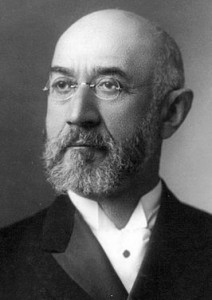
Isidor Straus
The brothers were Isidor Straus (1845-1912) and Nathan Straus (1848-1931), who were also German-Jewish immigrants like the Bloomingdales. Eventually, the two became the sole owners of Macy’s, and turned the company into an internationally-recognized brand, which now has 850 locations. The elder Isidor served as a US Congressmen and was a noted philanthropist and social activist. Tragically, he and his wife were aboard the Titanic when it sank in 1912. Despite his wealth and status, which immediately guaranteed him a seat on a lifeboat, Isidor refused so that all women and children could be saved first. He and his wife did not survive. His brother Nathan was also supposed to cruise the Titanic, but instead decided to take a trip to Israel. This decision saved his life, and Nathan saw this is a divine message.
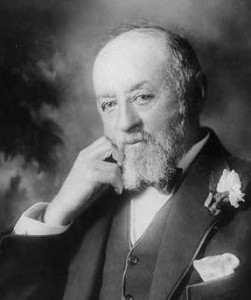
Nathan Straus
Nathan Straus dedicated the rest of his life to support the Jewish state, going on to donate two thirds of his wealth for the cause. His money opened up countless schools, health clinics and public kitchens in Israel. The modern city of Netanya is named after him. Meanwhile, Nathan also did a great deal at home. He opened a pasteurized milk institute that gave out free milk to children, and is credited with significantly reducing the incidence of milk-borne diseases. During the recession of 1893, he gave away coal and meat for free, opened lodgings for 64,000 people, and provided 50,000 meals for a penny each. In the recession of 1914-15 he provided over one million such penny meals, and during World War I, sold his private yacht in order to feed orphans. His personal motto was: “The world is my country, to do good is my religion.”
Words of the Week
God transforms spirituality into physicality; the Jew makes physical things spiritual.
– Rabbi Israel Baal Shem Tov

